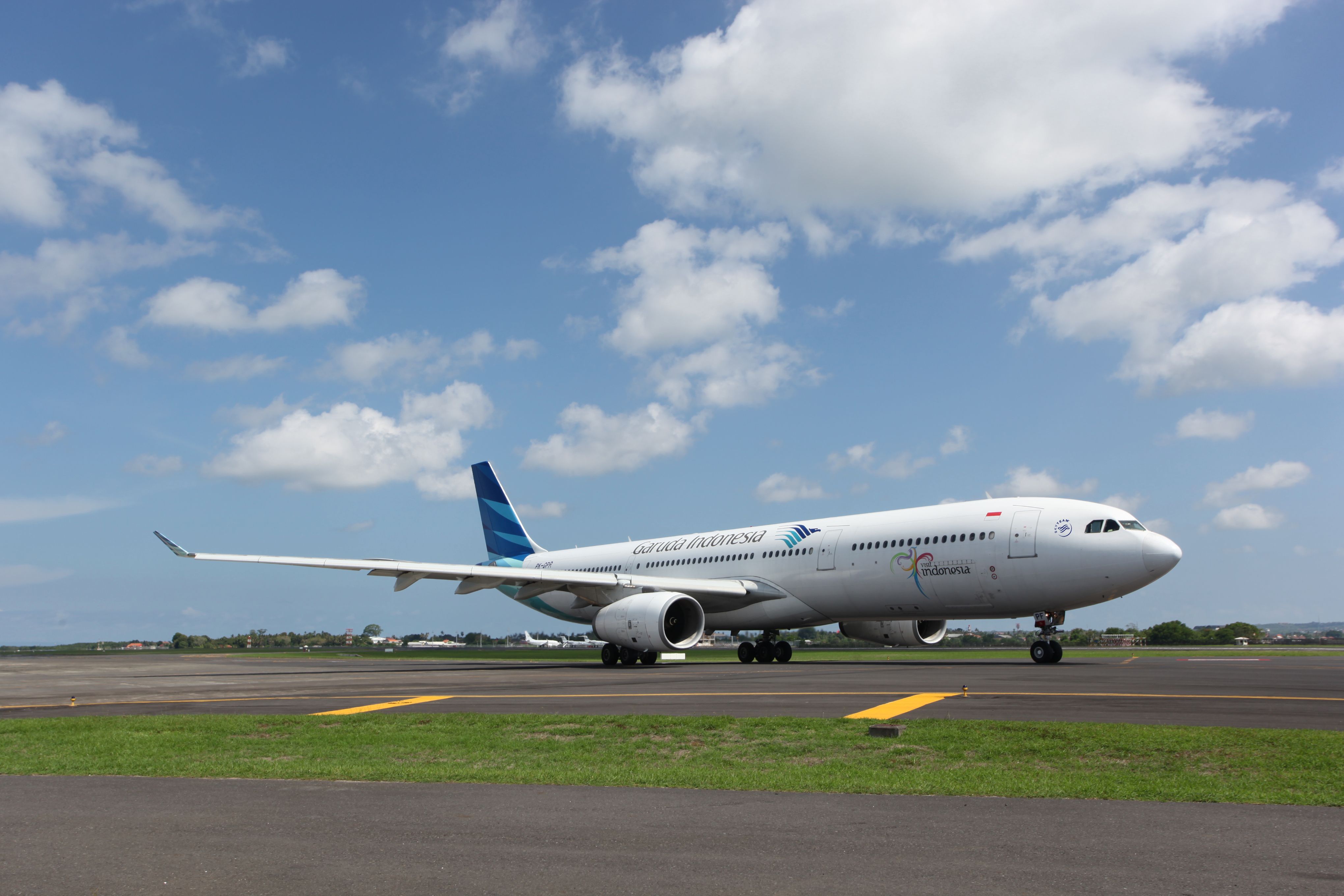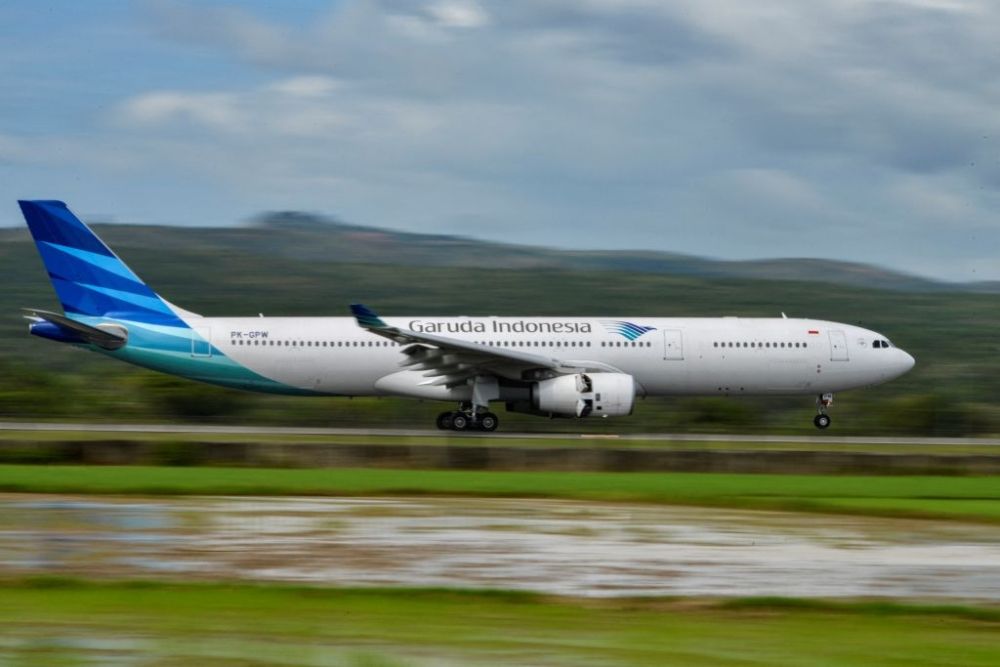Apart from Chinese carriers, there is no shortage of airlines restarting long-haul routes in Asia-Pacifc. Last week Indonesia's flag carrier, Garuda Indonesia, joined in by announcing it was restarting direct services between Jakarta and Melbourne, Australia.
The financial cloud is still there
Garuda Indonesia (Garuda) has had a tough time navigating through COVID, only narrowly avoiding bankruptcy and going through a court-ordered restructuring process. Garuda, majority owned by the Indonesian government, is writing off around $6 billion in debt, leaving many of its creditors with a sour taste in their mouths.
The airline is just dipping its toes back into widebody operations, and according to ch-aviation.com, it is operating less than a third of its twin-aisle fleet. Starting on November 23rd, Garuda will operate the twice-weekly service using one of its 12 Airbus A330-300s, with room for 36 passengers in business class and 215 in economy class.
Garuda flight GA716 will leave Jakarta Soekarno-Hatta International Airport (CGK) on Wednesday and Saturday at 21:00. It will arrive at Melbourne International Airport (MEL) at 07:35 the next day and depart as flight GA717 on Thursday and Sunday at 09:10, arriving in Jakarta at 12:15.
Garuda said recommencing the service is based on market demand for international corporate and leisure travel now that Australia's strict border restrictions are a thing of the past. While the Indonesian island of Bali is the biggest magnet for Australians, there is significant business, education and visiting family and relations traffic between Melbourne and Jakarta.
Indonesia sits between the Indian and Pacific Oceans, and its 17,000 islands are home to more than 273 million people. It is the world's fourth most populous nation and the most populous Muslim-majority country. Jakarta, the source market for the reopened route, has more than 11 million inhabitants, which Garuda can connect through its extensive network of more than 50 destinations.
Most widebodies are grounded
For an international flag carrier, Garuda has a relatively small fleet of 67 aircraft, with 29 currently inactive. The largest type is the Boeing 737-800, with 29 in service and nine not presently active. The data also shows that Garuda has 49 Boeing 737 MAX 8s on order, which may be part of a fleet renewal given the 737-800s have an average age of 11 years. There are also seven 777-300ERs (two inactive), 12 Airbus A330-300s (eight inactive) and five A330-200s not in service. Garuda also has five inactive A330-900neos, with nine more and four A330-800neos on order.
Discover more aviation news for Australia and Oceania here
Garuda's President and CEO, Irfan Setiaputra, said that reopening the Melbourne service is part of helping Indonesia's national economic recovery, particularly in the tourism sector. With Jakarta as the hub for the flights, he said,
"The route is not only accommodating the demand for more diverse connectivity throughout the archipelago but also providing seamless connections to other popular Indonesian destinations such as Denpasar [Bali], Yogyakarta, Lombok, Kualanamu and Surabaya."
While restarting any route is a risk and important, this move by Garuda is vital to its ongoing financial and organizational recovery. The airline must succeed and quickly generate enough traffic to make it profitable, simply because it can't afford any more financial flops given its precarious state.
Is this a route that will prove popular, and how do potential customers view Garuda Indonesia?



.png)